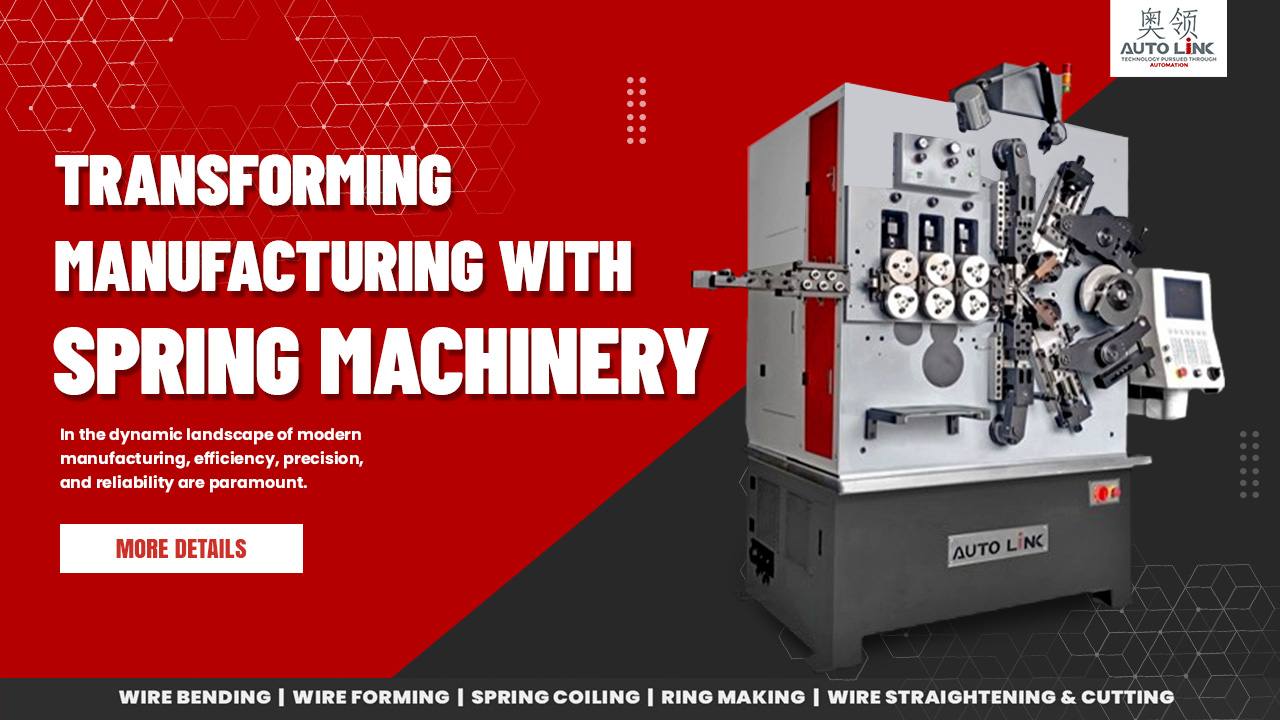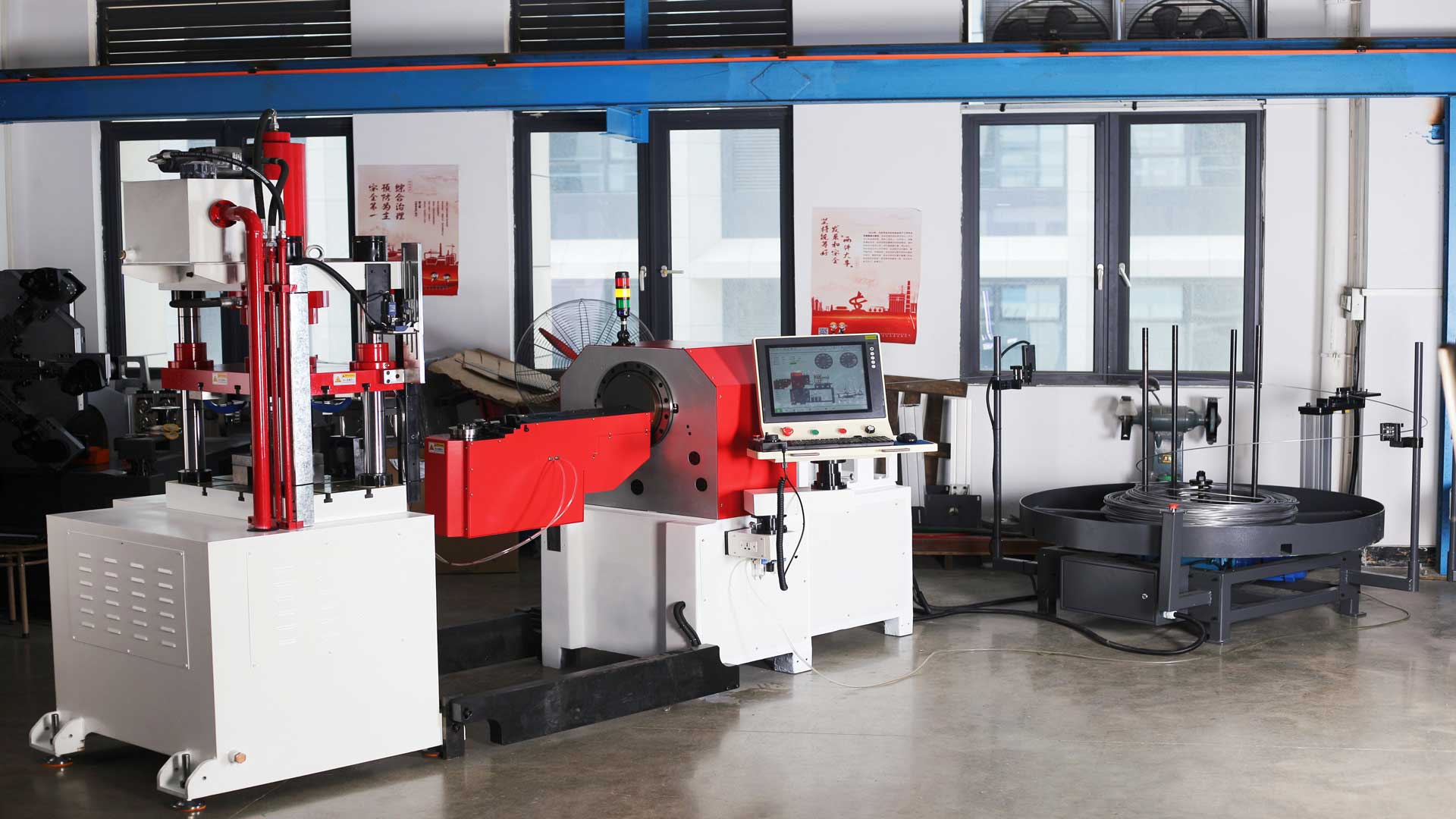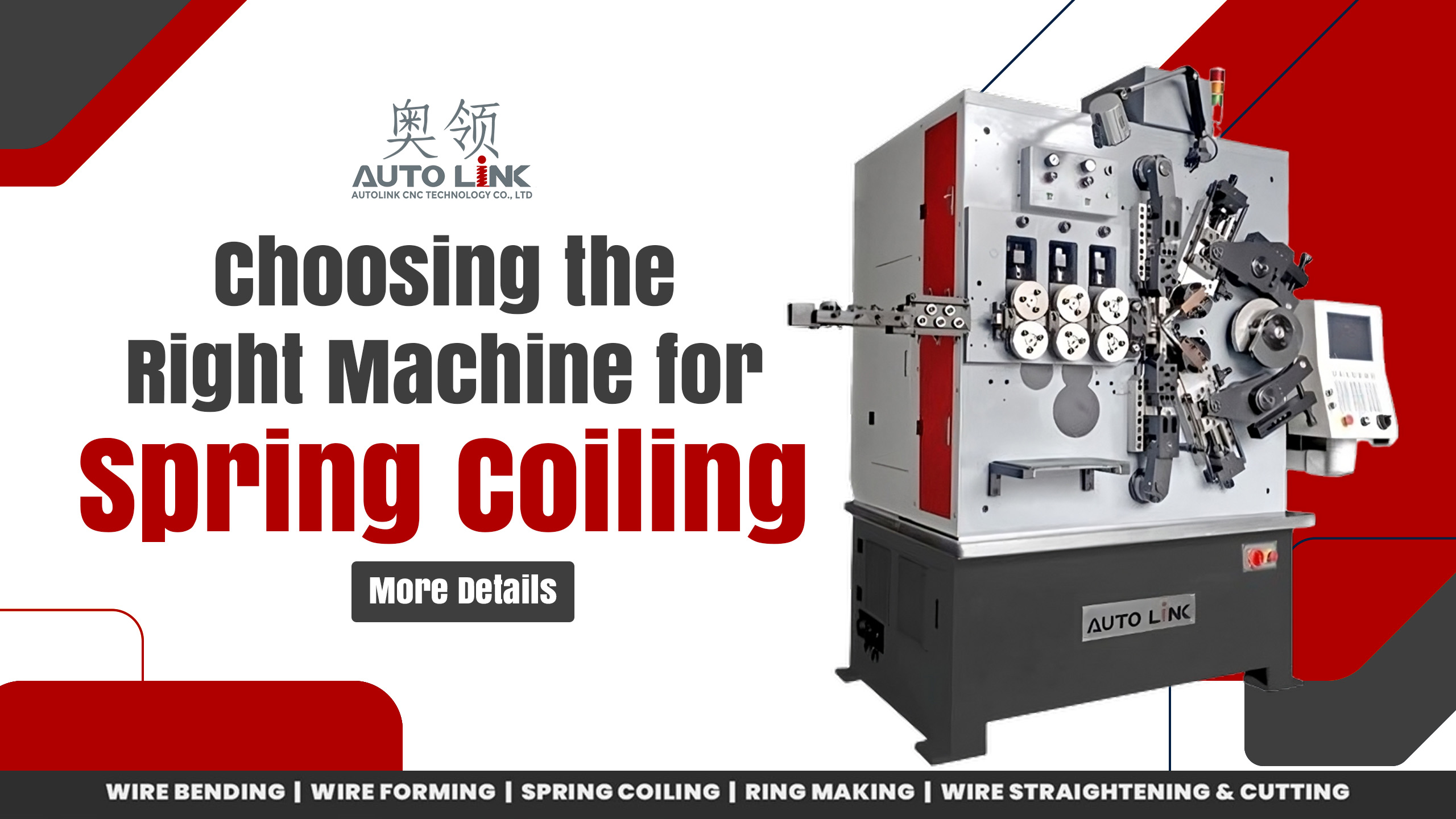Transforming Manufacturing with Spring Machinery
In Summary, spring machinery stands as a cornerstone of modern manufacturing, driving efficiency, precision, and innovation across industries. From its humble beginnings to its current state-of-the-art iterations, these machines have transformed the way springs are produced, elevating manufacturing processes to new heights of excellence. As technology continues to advance, the role of spring machinery in shaping the future of manufacturing will only grow, empowering industries to achieve greater levels of productivity, quality, and competitiveness.
In the dynamic landscape of modern manufacturing, efficiency, precision, and reliability are paramount. As industries strive for innovation and optimization, the role of spring machinery in transforming manufacturing processes cannot be overstated. These sophisticated machines, equipped with cutting-edge technology, have revolutionized the production of springs, playing a pivotal role in various sectors ranging from automotive to aerospace, and electronics to machinery manufacturing.
The Evolution of Spring Machinery:
The journey of spring machinery began with rudimentary devices, but over the years, advancements in engineering and technology have led to the development of highly specialized and efficient coiling machines. These machines are capable of producing a wide range of springs with exceptional accuracy and consistency, catering to the diverse needs of industries worldwide.
Precision Engineering:
At the heart of spring machinery lies precision engineering. These machines are meticulously designed to manipulate wire materials, shaping them into intricate spring designs with micron-level accuracy. By integrating computerized controls and advanced robotics, manufacturers can achieve unparalleled levels of precision, ensuring that each spring meets exacting specifications.
Streamlining Production Processes:
One of the most significant contributions of spring machinery to manufacturing is its ability to streamline production processes. By automating the coiling and forming of springs, these machines significantly reduce production time and labour costs while enhancing overall efficiency. This increased throughput enables manufacturers to meet growing demand without compromising on quality, driving greater profitability and competitiveness.
Versatility and Customization:
Spring machinery offers unparalleled versatility, allowing manufacturers to produce springs in various shapes, sizes, and materials. Whether it's compression springs, tension springs, torsion springs, or custom-designed springs for specialized applications, these machines can easily accommodate diverse requirements. Moreover, advanced programming capabilities enable quick reconfiguration for rapid prototyping and production of custom-designed springs, offering manufacturers unparalleled flexibility in meeting customer needs.
Enhancing Product Quality:
Consistency is key in manufacturing, and spring machinery plays a crucial role in ensuring product quality and reliability. By minimizing variations in spring dimensions and characteristics, these machines eliminate defects and inconsistencies, resulting in superior-quality springs that perform optimally in their intended applications. This level of quality control is essential in industries where precision and reliability are non-negotiable, such as automotive components, aerospace systems, and medical devices.
Driving Innovation:
The continuous evolution of spring machinery paves the way for innovation across various industries. Engineers and designers can explore new spring designs and applications, confident in the capabilities of advanced coiling machines to bring their concepts to life. Whether it's developing springs with unique geometries for improved performance or incorporating novel materials for enhanced durability, spring machinery provides the foundation for innovation in product design and development.






